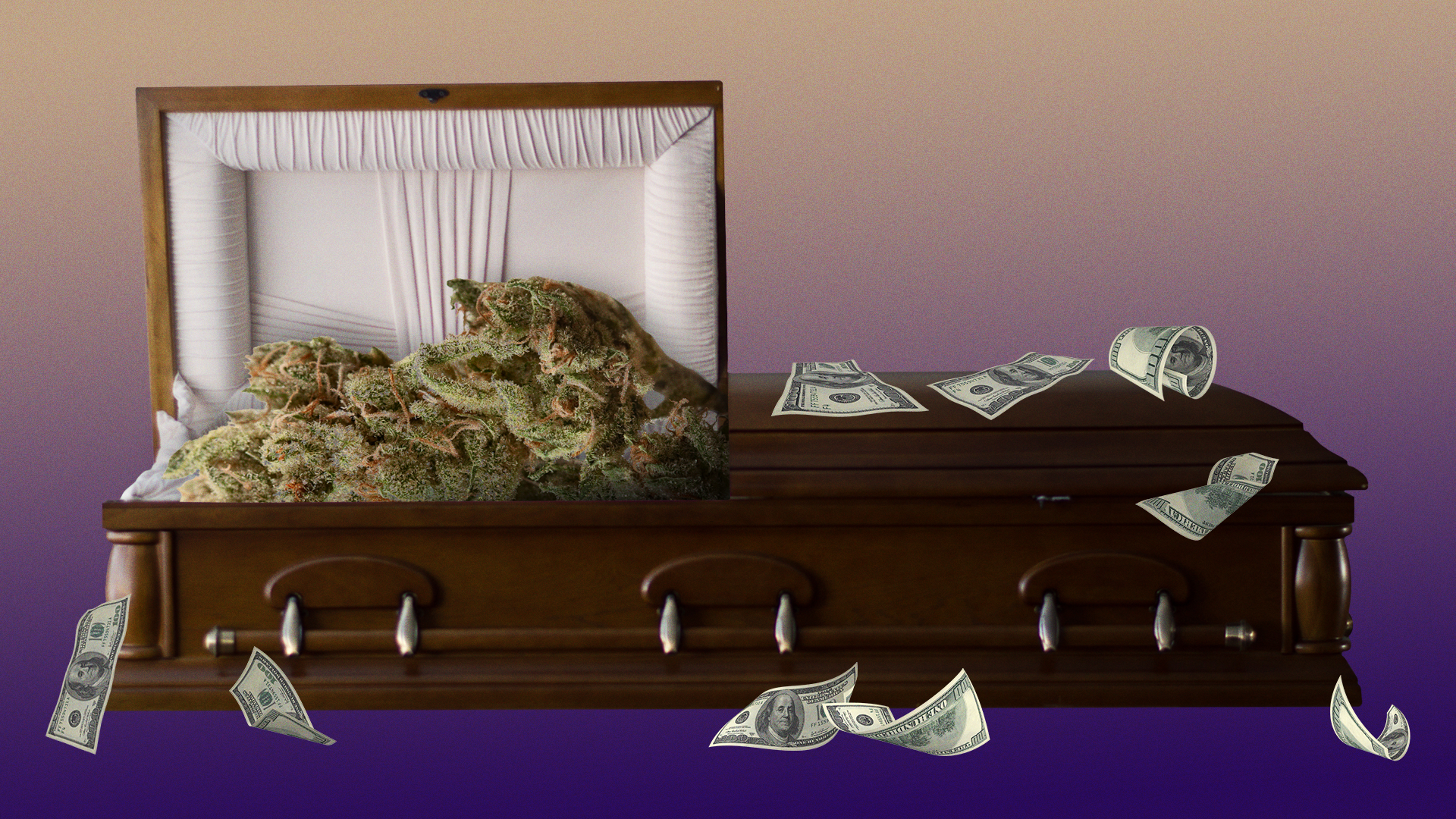California Just Jacked Up Weed Taxes. The Black Market Could Cash In

Credit to Author: Chris Roberts| Date: Tue, 26 Nov 2019 13:57:33 +0000
Already home to some of the most expensive, heavily-taxed legal cannabis in the United States, California announced Thursday it would jack up taxes on commercial weed. The move quickly triggered disgust, outrage, and a grim spin on the libertarian koan "taxation is theft."
For a legal market struggling to attract customers, the tax increase is a "brand new extinction event" that "will ultimately lead to retailers not being able to pay vendors or employees," according to Jacqueline McGowan, a cannabis-industry lobbyist with Sacramento-based firm K Street Consulting. “We're already seeing that happen" in some California cities and counties with extra taxes piled on top of state tax rates, she said.
Along with potentially strangling the legal market in its crib, excess weed taxes could also have serious unintended consequences for consumers who turn to unregulated and untested illicit-market products—including the tainted cartridges believed to have killed at least some of the 47 people lost to vape-related lung illnesses, four Californians among them.
Prop. 64, California's legalization law approved by 57 percent of voters in November 2016, imposed an excise tax and cultivation taxes on weed. (Cannabis sales are also subject to state sales tax; some cities and counties further impose a local tax on weed sales.)
Statewide, the ballot measure set the excise tax at 15 percent of the wholesale price paid by distributors. It also set taxes at $9.25 per ounce for cannabis flower, and $2.75 per ounce for cannabis "leaves," or trim—most often used as source product for distillates and edibles. The ballot measure gave the California Department of Tax and Fee Administration the authority to tweak taxes to adjust for inflation beginning Jan. 1, 2020. This tax hike represents the first bite at that apple.
For consumers, these forthcoming hikes amount to a "net increase of 12.5 percent" in the excise tax, according to Dale Gieringer, director of the California chapter of NORML, a weed-reform advocacy group.
"Given the epidemic of vaping disease caused by unregulated black market products, this is hardly the time to make legal products more expensive," Gieringer said. "California already has the most expensive legal market in the country. Legal cannabis needs to be made more affordable in order to compete more effectively with the unregulated black market."
The optics of a cash-hungry government squeezing an already strapped industry are bad, but the timing—responding to cries for relief with more taxes amid a vape scare—is worse, critics said. It's a "punch in the gut" to the industry that has since the beginning said high taxes would help ensure legalization's failure, according to Josh Drayton, spokesman for the California Cannabis Industry Association. And, unless this increase is reversed and other taxes are lowered, "There won't be an industry to tax in 2021," warned Mikey Steinmetz, CEO and cofounder of cannabis distributor Flow Kana.
The tax increase will also mean higher prices at dispensaries, as players along the supply chain pass on the costs to the public. "This is a consumer-facing tax," Drayton said.
Whatever happens next—businesses shedding jobs or closing, investment drying up—is also "being watched by other states," he added. The success or failure of California's market will have an impact on how they choose to legalize cannabis, he said—including whether they decide to legalize at all, or dismiss the whole thing as a failed experiment.
In a statement, Nicole Eliott, Gov. Gavin Newsom's senior advisor on cannabis, told VICE that Newsom was "interested in partnering" with the Legislature to address taxes as well as other woes squeezing the legal market. What those "cannabis tax solutions" might look like, however, and whether they would include reversing the CDTFA move, remain to be seen.
In a statement, a CDTFA spokesperson said the agency was bound by law to raise taxes in tandem with inflation, adding, "We certainly understand industry’s concerns. However, CDTFA does not have the discretion to utilize other factors in adjusting the cultivation tax rates."
But CDTFA appears to have defied lawmakers as well as weed sellers and consumers.
Rob Bonta, who represents Oakland in the state Assembly, authored a tax relief bill this spring that would have reduced the state excise tax from 15 percent to 11 percent. That bill was held in committee in May but could be revived—with fresh support—when the Legislature convenes next year.
In a statement to the Associated Press, Bonta blasted the latest move as "short-sighted," adding that it "ignores the realities that licensed businesses are at the breaking point, with many struggling to survive." Just about every business in America whines about taxes, but in the cannabis industry's case, there is widespread belief that tax bills are too high and legitimately imperil legalization.
"If you punish the cannabis industry with higher and higher taxes when it is trying to live within the law, you invite the persistence and expansion of a cannabis industry that is happy to live outside the law," said Craig Reinarman, a drug policy expert and professor emeritus of sociology at the University of California, Santa Cruz. "The risk in seeing cannabis taxes as a cash cow for strapped governments is that if you increase them enough, you re-create the conditions for the black market that legalization hoped to kill."
If the tax hike left some people scratching their heads, other critics said it shouldn't have come as a surprise.
"I'll just keep growing my own and watch from the sidelines," said Brent Saupe, a Berkeley resident, former Marine, and longtime grower who briefly worked in the legal market as a cultivator, "while shaking my head, trying hard not to say, 'I told you so.'"
Sign up for our newsletter to get the best of VICE delivered to your inbox daily.
Follow Chris Roberts on Twitter.
This article originally appeared on VICE US.